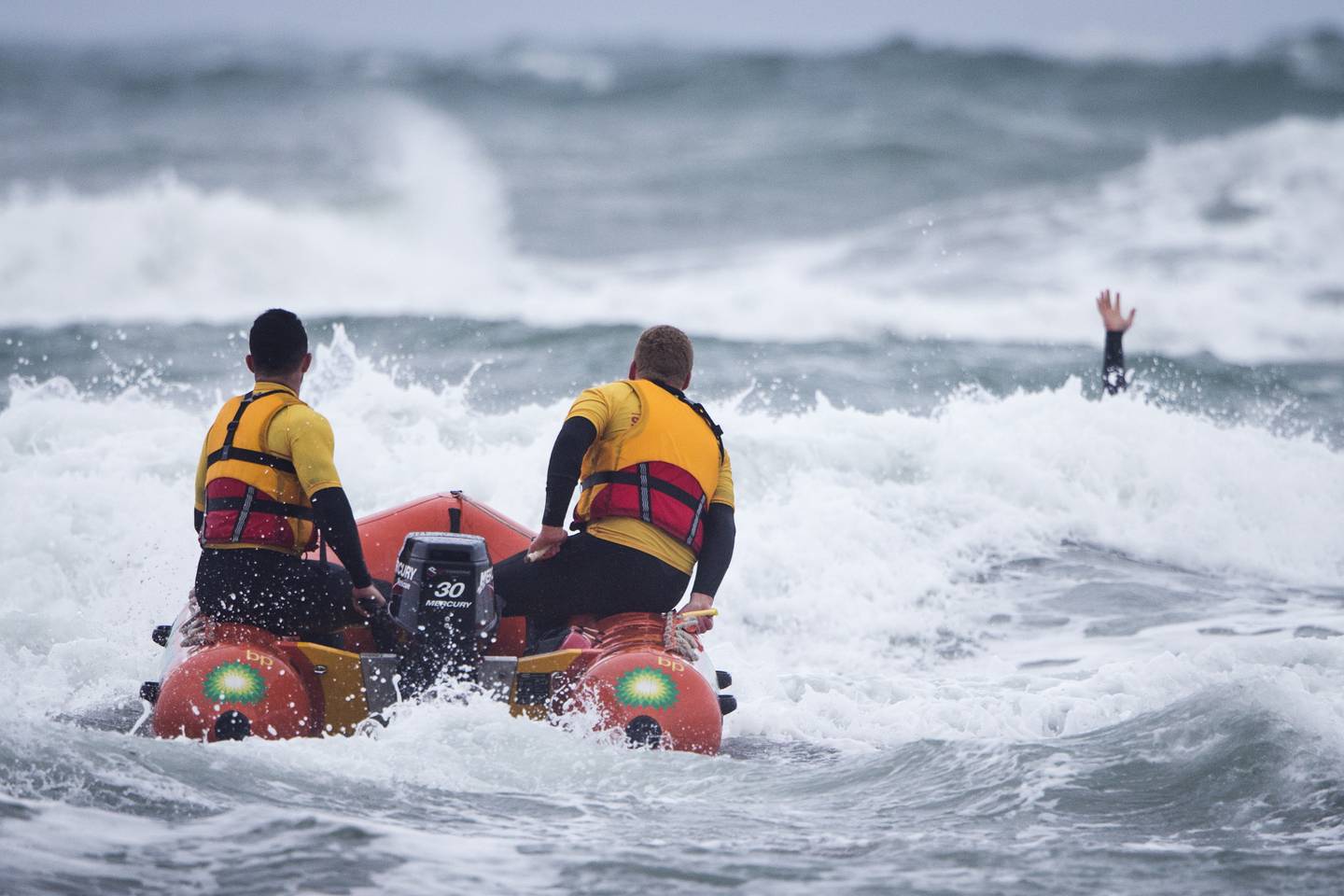
Four of the latest deaths happened in a horror 50 hours with swimmers dying in lakes across the North Island, while on January 1, Reece Nahana John Thomas, 36, died following a water incident in the sea at Kaikōura.
The devastating start has water safety advocates sounding a warning that the high number of people enjoying the warmer water could lead to more dramas along our coastlines, as Kiwis flock to beaches and rivers for respite.
The latest fatality was a person who died following a water incident at Two Mile Bay at Taupō yesterday evening.
Emergency services were notified at 6.07pm but attempts to revive the swimmer were unsuccessful and they died at the scene.
Earlier that morning a person drowned at a lake near a beach southwest of Auckland.
Emergency services were called to Lake Puketiī, near Karioitahi Beach, just before 11am.
A second person was pulled from the water and treated by St John Ambulance staff. That person was in a moderate condition.
As the tragedies unfolded the body of a teenager was recovered from Lake Arapuni on the Waikato River.
Police received a report about 8.25pm on Tuesday that a man had gone into the water at the Jones River Landing area and had not returned.
A couple of men had tried to keep the 18-year-old afloat but were unsuccessful.
An evening search failed to find him with the police national dive squad taking to the water the next day where they recovered the missing swimmer.
A day earlier a young girl drowned on Lake Rotokawau near Rotorua.
The child was believed to be just 4.
A police media spokeswoman said police were alerted to the incident about 4.35pm on Monday and confirmed a young girl had died.
A rāhui has been placed on the lake from early this morning until further notice.
On Saturday the body of the man was found in the Otara River, near the end of Ford St in Ōpōtiki, about 6.40pm.
Police said initial indications pointed to the death resulted from a jet-ski incident on the river.
The Otara River is about 35km long and reaches the sea at Ōpōtiki in the eastern Bay of Plenty.
A day earlier on January 1, Reece Nahana John Thomas, 36, died following a water incident in the sea at Kaikōura.
Police said they were called to the beach around 11am near Edmund Ave to reports a man had gone into the water and not resurfaced.
Volunteers from Coastguard Kaikōura helped retrieved his body and take him back to shore where police and ambulance staff took over.
Water Safety New Zealand is appealing to all people to make wise decisions around water.
"We know Kiwis will continue to enjoy our beautiful waterways as the warm weather continues. We need everyone to take responsibility and think about water safety," said spokeswoman Sheridan Bruce.
"While our waterways are our playground they can be incredibly unforgiving."
Key safety messages included always taking a buddy, swimming between the flags at patrolled beaches, constant active adult supervision of children around water at all times, watching out for rips and always wearing a lifejacket on boats and while fishing from rocks or net fishing.
Surf Life Saving northern region head of operations Alan Gibson reiterated calls for people to take basic precautions to ensure day outings did not end in tragedy.
"We are asking if people go rock fishing that they wear a life jacket and tell someone where they are going," said Gibson.
"If they are bathing, just to never swim alone and if you get caught in a rip to ride it out and put their hand in the air and seek lifeguard assistance."
Bystanders who witness people in strife in the water should dial 111 or get the attention of lifeguards if they were on a patrolled shoreline, Gibson said.
"Sadly, in New Zealand, a lot of bystander rescues end up in a double or single tragedy for the person who is entering the water to save someone else."
Last year 69 people drowned in New Zealand. The majority of deaths happened in the upper half of the North Island.
Beach safety messages
1. Choose a beach with lifeguards and swim between the flags
2. Read and understand the safety signs - ask a lifeguard for advice as conditions can change regularly
3. Don't overestimate your ability or your children's ability to cope in the conditions
4. Always keep a very close eye on young children in or near the water - keep them within arm's reach at all times
5. Get a friend to swim with you - never swim or surf alone
6. Watch out for rip currents, they can carry you away from shore. If caught in a rip current, RELAX and float, RAISE your hand to signal for help, RIDE the rip until it stops and you can swim safely back to shore. Remember - nobody is stronger than a rip.
7. Be smart around rocks: When fishing, never turn your back towards the sea and always wear a lifejacket
8. If in doubt, stay out!
9. If you see someone in trouble, call 111 and ask for Police
10. Be sun smart – Slip, Slop, Slap and Wrap. Protect your skin and eyes from the sun's damaging rays












